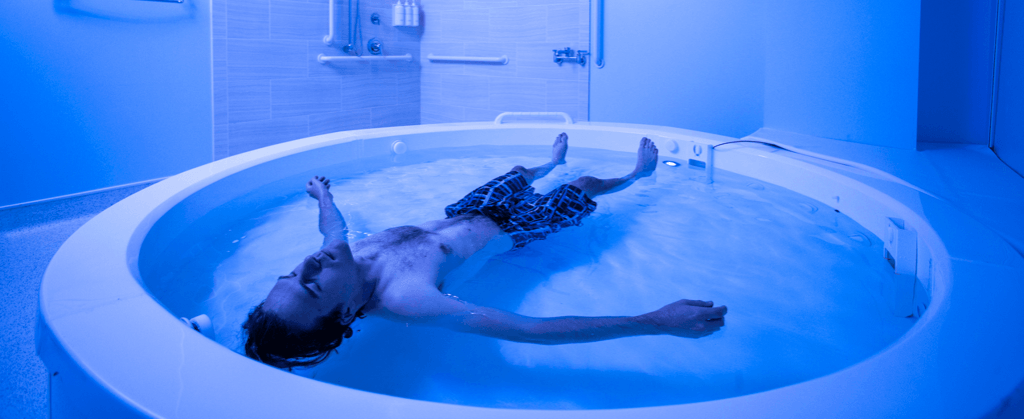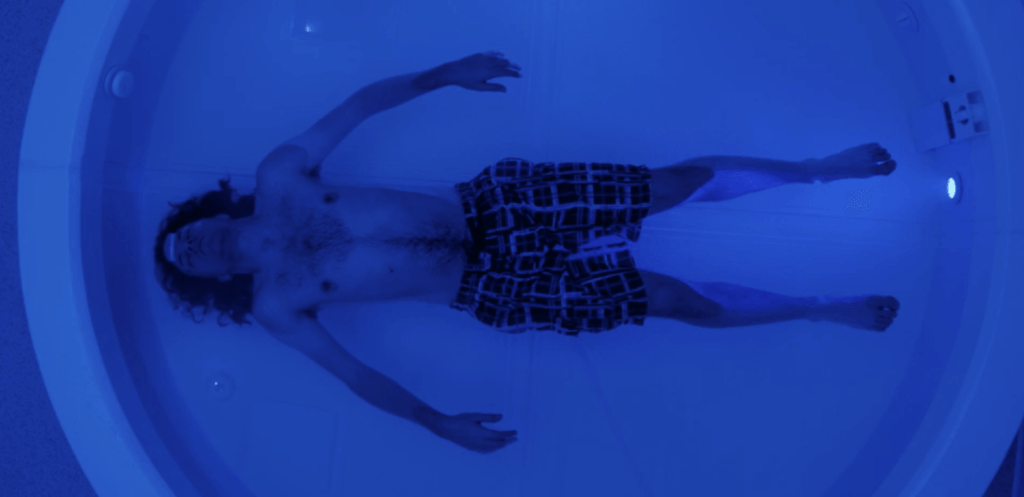INDICATIONS
There are many physical and mental diseases which have the potential to be helped by flotation therapy
Today we know more about what happens in the body and brain when a person floats for sixty minutes, thanks to a select band of researchers. We have reached the point where there is evidence for the clinical use in disease. Through physiological responses to floating we know that blood flow maximises, muscles relax, large areas of the cortex in the brain close down, and these responses can lead to self healing. Blood pressure reduces. Chronic and acute pain, for example, are ameliorated just by floating.
Physical conditions
Chronic pain
Where no direct cause can be detected such as in fibromyalgia, floating has proved in research to greatly ameliorate the pain. It is notable that in studies of fibromyalgia every single subject reported reduced pain.
Acute pain
For example in sports injuries it has been shown by top-level sports teams that are use of flotation speed recovery. The exact mechanism is being investigated and may include the increased blood flow and lymphatic flows induced by the capiliary dilation and may also have links to changes in the brain.
Joint pains and swellings
There are many anecdotal reports of relief from pain and improved mobility using Floatation therapy with no other intervention.
Mental illness
- Anxiety
- Anxiety sensitivity
- PTSD
- Eating disorders
- Panic attacks
- Clinical depression
- Drug dependency or addiction
- Neuroses
Published research and ongoing research has shown very promising positive results in anxiety in its many forms. In the history of floating over the last seventy years, very little attention has been paid to mental illness and it is true to say that anxious people would be unlikely to attend a commercial Float centre, representing, as that does, a challenging new experience. Now that Dr Justin Feinstein’s research has been published we can see that clinical flotation has enormous potential as an intervention in many forms of mental illness. Furthermore the use of fMRI scanning has validated the psychological reporting in that real changes can be seen in the brain.
The combination of the open float pool, which avoids the “claustrophobic “ response, with modern scanning tools for the brain has shown us that clinical flotation will surely join the pantheon of interventions for mental health.
Furthermore clinical flotation as an intervention Carries very little risk of side effects or hazard to the individual. It is genuinely a tool for harnessing the brain and body self repair mechanisms.
Sleep
Anecdotally it seems that the floating state, although not necessarily including sleeping in the float pool, refreshes the body and encourages sleep later in the same day thanks to the relaxation response. It is worth pointing out here that there is no hazard in sleeping in the float Pool, supine. Because of the total support of the solution the pressure at no point exceeds blood pressure and consequently there is no need to turn during sleep. Individuals have slept for many hours in their personal float thanks.
Insomnia remains an interesting area for research because anecdotally many sufferers have found that even one float session improves their sleep and this would be consistent with the finding that the anxiety state is reduced or converted to relaxation.
Jetlag
No peer reviewed research is available but again there are many anecdotes of a float session after a long flight, for example, resetting the circadian rhythms which have been disrupted by a large change in time zone.











